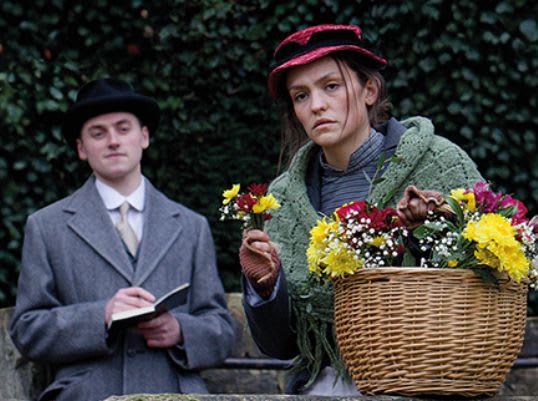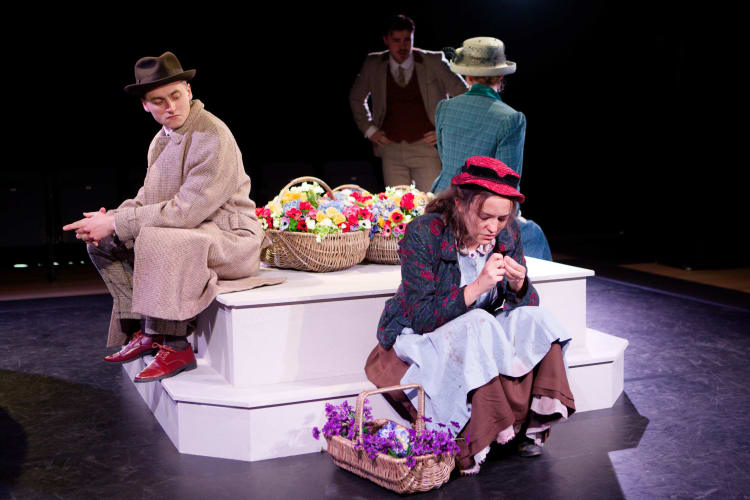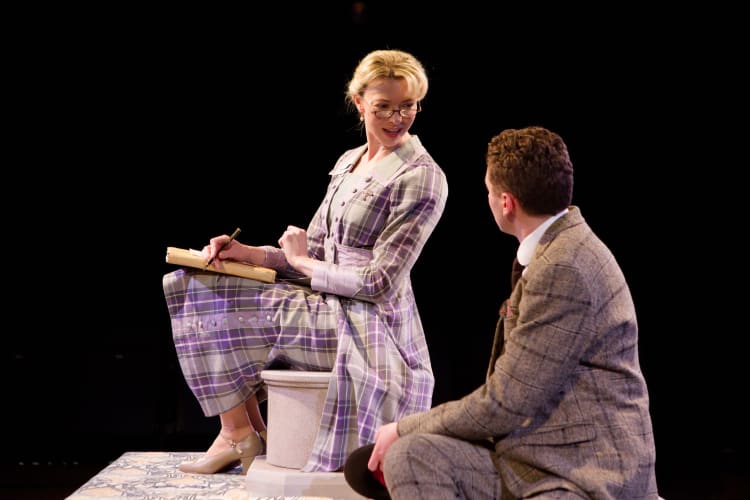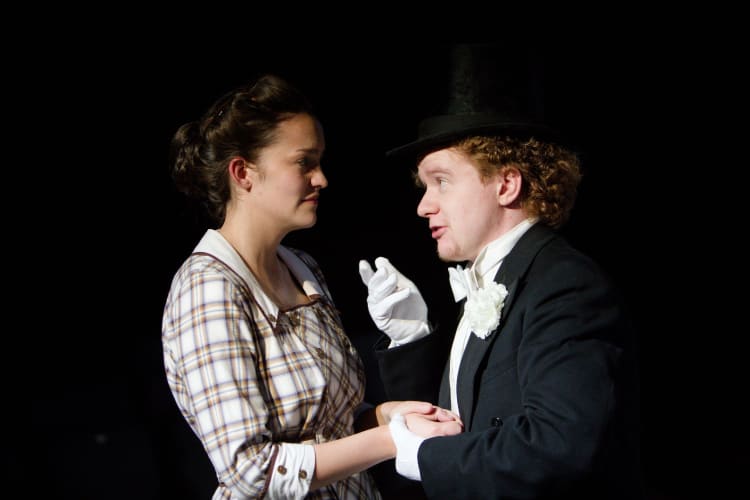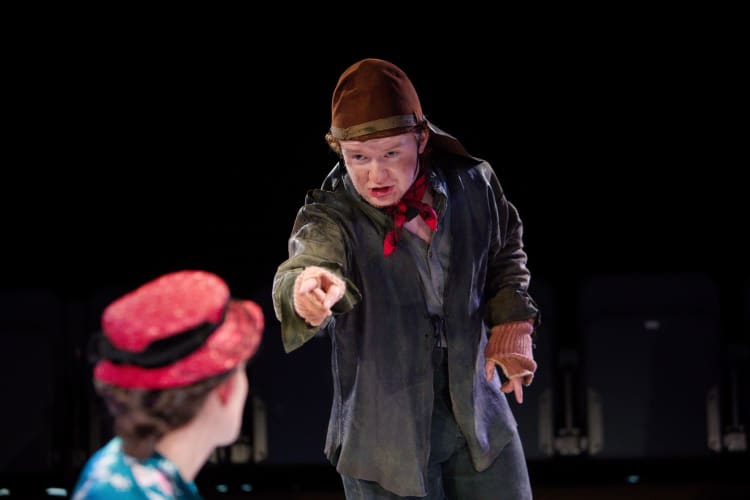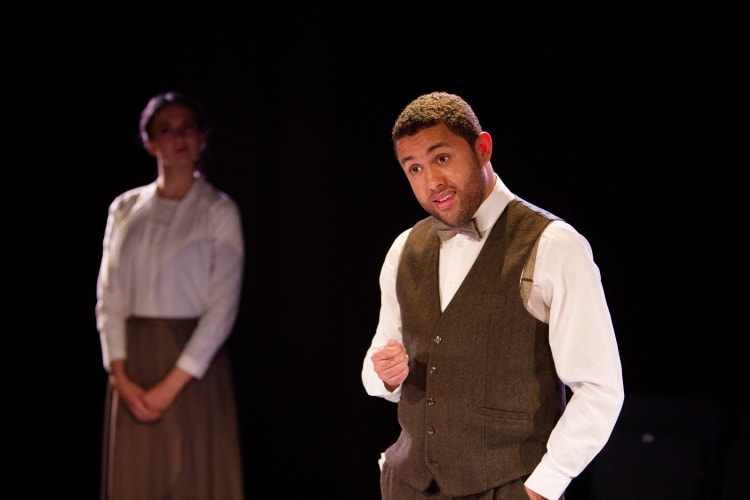It was the Roman poet Ovid who came up with the idea of Pygmalion, the sculptor who shaped a statue as his ideal of female perfection and promptly fell in love with his creation.
In his version, the goddess Venus is so impressed that she makes the figure come to life as a reward for his labours. George Bernard Shaw, who believed women should be able to shape their own futures, saw things rather differently, and this bristling production for a highly talented cast of young actors brings his arguments vividly to the fore.
Most of us will be familiar with the 1964 film My Fair Lady with Rex Harrison as Professor Henry Higgins and Audrey Hepburn as his protégé Eliza Doolittle, or the stage musical on which it was based. Its source, the play Pygmalion, for all its underlying humanity, is however made of much sterner stuff than that sentimentalised image of genial joviality.
This production is performed with almost no stage furniture, but a compensation is to experience theatre-in-the-round—or in the square as in Malvern’s Studio 1—so close to the action that one feels as much an accomplice as a spectator. The face-to-face rows have greater energy, the slippers thrown in anger land with greater force, an uneasy silence at a difficult social gathering creates greater tension—something the actors might have the courage to hang onto for a few moments longer.
Above all, it’s a chance to observe fine performances, sometimes at no more than one arm’s length.
Emily Henry is terrific as the scratchy, hand-twisting, lip-chewing, uncertain Eliza Doolittle with the shriek of a wounded cat, who is transformed in the way she talks, and walks, and holds herself as a lady of society. Yet she carries complete conviction as one who has become a lost soul, and turns on Toby Burchell’s Prof. Higgins for treating her as no more than an experimental doll.
If Burchell were not such a fine actor, he might find an alternative career as a stage hypnotist, such is the power of his portrayal of the arrogant, condescending, insulting, unfeeling professor of phonetics. One senses that Eliza might tear his skin, were it not for the unlikelihood that he would bleed.
Rhys Harris-Clarke—perhaps born to play comedy with that mop of red pan-scourer hair—revels in the typical Shavian contrariness of two wonderful set-pieces for Eliza’s dustman father Alfred, as a member of the ‘undeserving poor’, gloriously and happily without scruple, then lamenting his elevation through sudden unexpected inheritance to the mores of middle-class morality.
There is no weak link in the cast, with Jessie-Mae Thomas and Abbie Steele striking exactly the right notes as the sensible, grounded housekeeper Mrs Pearce and as Henry’s mother, the only woman to whom this self-centred narcissist seems beholden. Henry R Pyne is the sympathetic Colonel Pickering, and Edward Kirby an appealing Freddy, with whom almost anyone but the unsentimental Shaw would ensure Eliza got hitched.
Director Nic Lloyd ensures his vision runs smoothly through the production, and special mention should go to Bridget Lloyd whose costumes so exactly match their characters, Higgins in a tweedy three-piece suit, Mr Doolittle in a wonderful dustman’s get-up. And after Eliza’s triumph in being presented as a lady of quality at an ambassador’s ball, she stands alone, ignored by the chattering professor and Col. Pickering, dressed in a flowing white robe exactly like the statue in Ovid’s original tale. A lovely touch.
